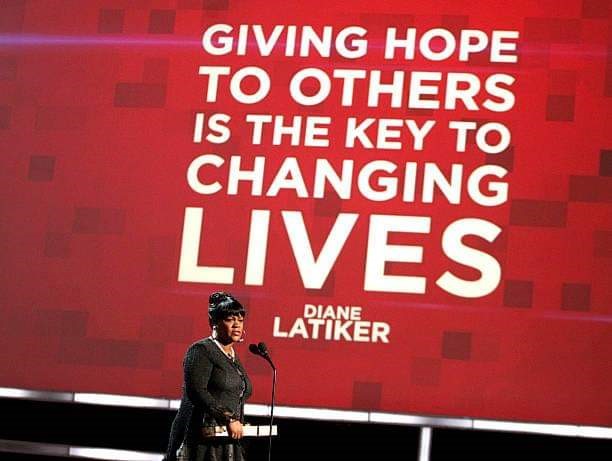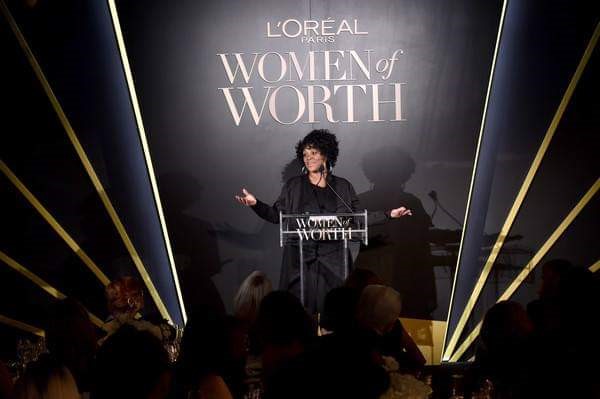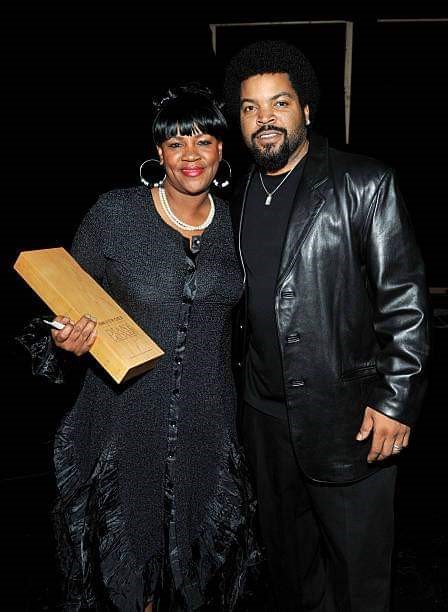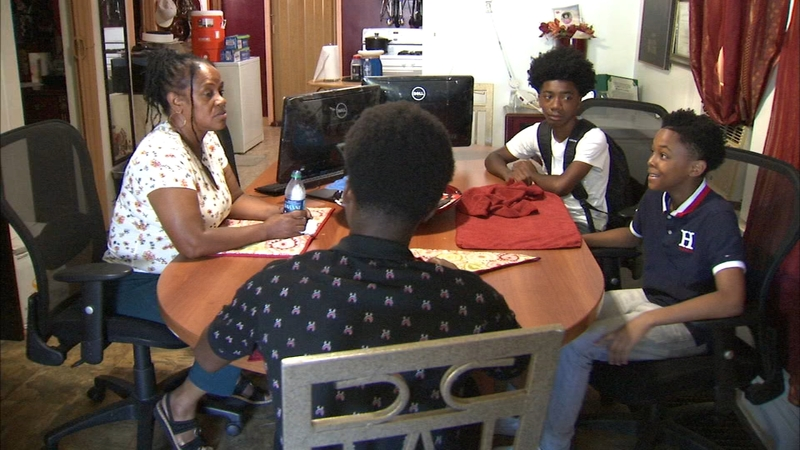Community activist Diane Latiker has been honored with so many awards that her dining room can hardly contain them. However, the makeshift memorial across from her house outnumbers her awards, with hundreds of stone markers that bear the names of the children she had lost to gun violence. The ages range from 6 months to victims in their young 20s. Latiker is also the founder of the not for profit organization Kids Off The Block (KOTB). Latiker describes her organization as a “holistic care center for prevention, personal growth, and empowerment.” Founded in 2003, the organization reaches out to the most “at-risk” youth in the Roseland/Pullman area. It provides them with access to a path that leads away from violence, self-destruction, and economic impoverishment. To achieve its mission, Latiker’s foundation offers a multi-service youth program that focuses on personal and social growth, health and wellness, and educational achievement. KOTB provides a safe place “off the block” for those young people who do not feel welcomed by traditional youth programs.
Kelly Washington (KW): Tell me more about your organization, Kids Off The Block (KOTB).

Diane Latiker (DL): Kids Off The Block was founded in July of 2003 in my home. My daughter, who was 13 at the time, had nine friends that would play on the block. My mother told me I should do something with the kids in my home. I prayed about it for three days. After the three days, I just asked them to come into my living room, and they shared the issues that they were having and the issues that their friends were having, such as boys being approached by gangs, girls being approached by men for sex, poverty, and feelings of hopelessness. I would give them whatever help I could provide. Before I knew it, I had 75 kids in my home, and that is how it all started.
KW: Wow! KOTB was founded in 2003. It is 2020. What does that mean to you, and how has your foundation’s mission evolved?
DL: It will be 17 years in July. When I first started, I was so naive in thinking everyone wanted to help these kids, but wow, have I learned a lot! I had no idea where this was going to go when I let those young people into my living room. I just wanted to help. I had no idea that all these young people would come to my house over the years. It has evolved into a place where they can feel safe. It is a place where young people put their pride down and come to a woman that they do not even know, because of what they heard. We have dealt with our share of violence. I have found myself in between two guns from warring teens, had my van shot up, gangs threatening my family, and I have lost many young people to gun violence. In addition to that, my husband threatened to divorce me numerous times; my kids thought it was too dangerous, and my neighbors would call the police on me because there were too many kids coming in and out of the house. My resilience has evolved. During those times, I would say, I am done.
I cannot do this. It hurts too much. Then one of my kids would say to me, “If it were not for you, Miss Diane, I would be dead or in jail” then I am back in it again, and it is the most rewarding thing I have ever done in my life. I found my passion at 46. I am not naive anymore. People always ask me, why do you stay in the neighborhood? You could move. Then what? The young people I have helped, have brothers and sisters growing up, why would I leave them? My knowledge has evolved because now I know what young people need. I help in ways that society will not. It costs nothing to open my door. Society has this perception of who they think these children are, but I know who they are.
KW: What does KOTB provide for the youth?
DL: We provide rudimentary services, such as teaching them conflict resolution. We speak with the kids, and we mentor them. Our organization is unconventional. In the summer, when violence spikes, we partner with other organizations in the summer that are also helping at-risk youth. We have affected the lives of over 1000 kids and have kept them busy. We also host Feed a Teen. That is where we feed a teen and their families for Thanksgiving. In 2007, we started out feeding 38 families; in this past year, we had over 600. We bring gangs together to have a meal under a tent. Last year Lori Lightfoot came to speak to the youth.
We provide coats in the winter, and we have Christmas toy drives. We gave toys to 250 families. We also had a school drive where we gave over 200 kids all the resources that they need to go back to school. Our donors are amazing! We have had to find our niche in the way that we help young people. We take kids back and forth to school, so they do not have to walk through gang territory. We are also taking a group to Atlanta, and it will be our 26th city, so we are taking kids off the block. We started a basketball league four years ago with 14 teams, and now we have 36! People and their families come to the basketball court across the street over the summer, and it is such a beautiful thing. Then there is the everyday, the personal stuff that I do not talk about anymore because it is tough.

KW: From 2003 to now, do you find the negative influences getting better or progressively worse?
DL: I think it is getting better. I think the issues that plague our neighborhoods are finally being brought to the forefront. I am not the only one out here, extending my help to the youth. There are a lot of people out here doing great things in the community, but they are not getting the recognition. These people are lifting the community up as well, and I shudder to think what would happen if these leaders were not here. I actually had no idea when I started KOTB, that there were these pillars in the community doing all that they can to keep the community safe, and to keep the youth from killing each other. Outsiders portray our neighborhoods as bad and act as if no one is doing anything. However, they do not even come to the neighborhood to find out. There are so many people doing great things, and they still are. I am glad they are here because the cavalry ain’t coming! We are the cavalry in our communities because we know what it is.
KW: You built a basketball court for the neighborhood. How did that come about, and what does it mean to you and the community?
DL: We were featured on the TV show “Secret Millionaire”. Someone from Los Angeles called and said that they wanted to come out and do a documentary, and I said ok. A guy had come out posing as someone named “Steve.” He came with a crew, and they had the camera on him the whole time. I got angry because it was supposed to be about the kids. So I threw my microphone down and forgot I had a hot mic on me, and I was going off! They said, Diane, we could still hear you. I said, well hear this, and snatched that one off too! I calmed down, and the gentleman stayed for four days, and the kids fell in love with him, and so did I. At the end of the four days, he said Diane, tell everyone to be on the lot because I am leaving. I was in shock because he just got here. So I walk across to the lot across the street, and he says I have something to tell you all. I am not who I say I am; I am actually a millionaire. That did not phase anyone. We were like, ok? He told us that our organization was one that he decided to help. Then he pulled the check out of his pocket, and my mouth was open for like 5 minutes! Next thing I know, there were cameras and 40 people that came running from the alley, and that’s when he told me, I am going to build you a basketball court. Not only that, but he also bought my husband a TV and computers for our Lab. That court stays packed in the summer. It means so much to the community.

KW: You are one of CNN’s unheralded heroes. Ice Cube presented you with the award. How did it feel to be honored in such a way?
DL: It was unbelievable! CNN wants to honor little ole me? When they called me, they asked me to go someplace private. Then they told me the news and told me not to tell anyone, so I was holding on to this secret!
KW: I know that was tough! You always want to tell at least one other person.
DL: Yes! It just blew my mind! They already told me I was CNN’s hero of the week, but when they told me that I was one of the top 10 unheralded heroes, I did not know how to react because *pauses*, you just don’t ever feel worthy. I walked around for days like, really? So anyhow, when I flew to Los Angeles and went to the awards show, they do not tell you who is going to present you with the award. However, when Ice Cube walked out onto that stage, I knew right then. I said to myself, that is who is going to bring me up. The way I felt at that moment was unexplainable. The experience was out of this world! When I received my award, and Ice cube and I walked off the stage, Anderson Cooper said, “Diane Latiker has got everybody back here crying.” It was awesome! However, I have another interesting story to tell you.
KW: I am listening.
DL: CNN was a big deal, and I received a lot of exposure from that, but I was validated by the young Black youth when I received the BET “Shine Your Light” award. It did not seem like much of a difference until that happened. I got the CNN award in 2011 and received the BET award in 2013. After I received the BET award and came back home, I had young people who did not even acknowledge me, say to me, “Ms. Diane, you were on the BET awards show!” It turns out there was a difference. The BET Awards was everything to the youth. It validated them. Not me-them. They came to my house day and night because of that. These kids put me on social media, and I did not even make a speech at the BET awards show! *laughter* I just stood on stage! It meant a lot to them, and I learned it was a difference in the way that they perceived things.
KW: So I read that there was a biopic in the works? Can you speak more to that?
DL: Yes. I also have a book too.
KW: Oh, wow! A book? Now you have to tell us about that too.
DL: The book is called Kids Off The Block, and I worked on it with Bethany Mauger. We had to talk a couple of times a week for 2-3 hours. Bethany pulled stuff out of me that I completely buried. Some things were painful, like thinking about the young people I have lost. That sheds your soul. It makes you want to give up because you want to save them, and realize that only God can save them. You always have that feeling that you could have done more. Talking with Bethany was a reminder of why I continue to do this work. That is what the book is about. I want to inspire people around the globe. If you care about something in your community, you do not need a million dollars or a big house or degrees. You just need to care, and the children could feel that! They know that you care, and it means everything.
As far as the biopic, it has been in the works for the past 11 years, and people have worked hard to get this to come into fruition. Finally, we got some interest, and Bill Duke said he would direct it, and that is where we are. Right now, we are approaching Octavia Spencer and Viola Davis.
KW: I love them both!
DL: Me too! Viola knows she plays her role! So we are waiting to see which one of them says yes.

KW: How can we help? How can the community help?
DL: We can become united. Our youth needs all of us. Do you believe that a piece of steel, a gun, should have more power than the community? There is supposed to be cohesion, togetherness. We have to protect the young people in the streets because that is what the gangs are providing to the youth, but they use it negatively. We are losing so many kids to violence. There is a 1-year old’s name in that memorial across the street, and you mean to tell me that is not enough for us to come together? What will it take for us to bring a sense of community to the forefront? I am willing to do anything if it lets young people know that we are here for them. They do not have to run to a gang nor pick up a gun to feel powerful. Why are we hiding behind our doors? When did we become afraid? We dealt with lynchings, supremacists, job loss, illnesses, and we prevailed! Then violence comes along and threatens our youth, and we go hide? That ain’t us. So if I go down, I am going down just like this.
We also need donations and volunteers. The individual donors who send us $20, $40 have kept us alive over the years. The reason I can run all these programs is because of people who care as I do. They just did not want to be in the trenches, and it is ok. I am grateful for every penny. We had to earn it. They, too, realize that these young people are worth it.
KW: Last question. What would you like your legacy to be?
DL: I would like it to be that every young person in this city and around this country has a home that they can go to that benefit more than it hinders them. A home where they will have meals every day and where they can be educated and go to college. I would also love it if there were a series of safe houses. One house could be where they can learn to fill out a FAFSA application, one house could be a shelter, one home could be recreational where they could blow off steam, and another equipped with art and music. That’s the legacy, for kids to forever feel safe and always have safe spaces. Fifty years from now, younger generations will ask, “Who was this Mrs. Diane Latiker?” and the older generation could tell them, “I will tell you the story. Let me take you to this street.”
If you want to find out how to donate or volunteer, please go to- https://www.kobchicago.org/.